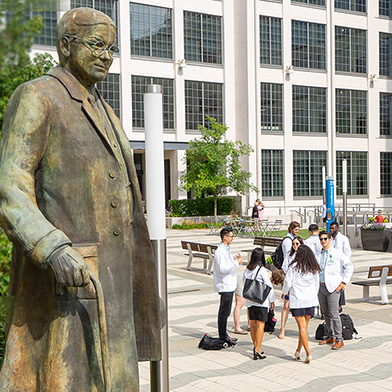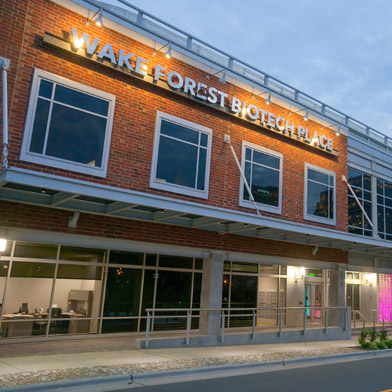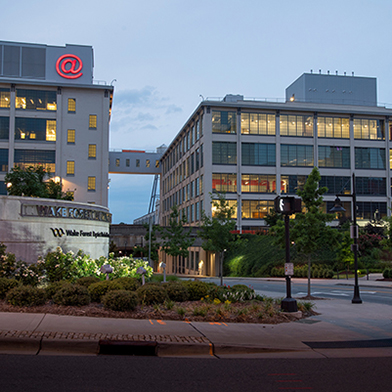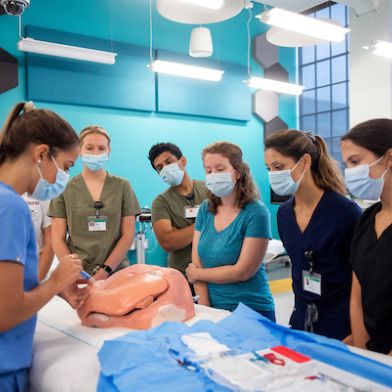At Wake Forest University School of Medicine, education extends far beyond traditional classrooms. Students engage in immersive learning across the Winston-Salem and Charlotte campuses, Innovation Quarter and Pearl districts, and a variety of clinical and research settings. These experiences are enhanced by cutting-edge technology and flexible learning formats, including distance-learning programs like the satellite PA Studies program at Appalachian State University and the online Doctor of Nursing Practice program.
Our educational spaces—including Biotech Place, the Bowman Gray Center for Medical Education and 525@vine in Winston-Salem, and the Howard R. Levine Center for Education in Charlotte—are purposefully designed to support the next generation of health care leaders. These facilities, transformed from historic tobacco plant buildings, now house programs in medicine, nurse anesthesia, physician assistant studies, and biomedical sciences. Students benefit from tiered classrooms, clinical skills labs, simulation suites and advanced anatomical training centers that foster hands-on, collaborative learning.
The curriculum emphasizes not only medical knowledge and patient care but also communication, professionalism, and real-world application. The Center for Experiential and Applied Learning (CEAL) plays a pivotal role in this approach, offering simulated clinical environments where students can practice and refine their skills early in their training. This holistic, forward-thinking model ensures that Wake Forest students are well-prepared to lead in a dynamic health care landscape.
Learning Spaces

Bowman Gray Center for Medical Education

Charlotte Campus

Wake Forest Biotech Place

525@vine

Center for Experiential and Applied Learning (CEAL)
Beyond the Classroom
Students gain practical experience in a number of locations, and thanks to all the sites affiliated with Wake Forest University School of Medicine and Atrium Health Wake Forest Baptist, students have a wide range of options for electives, rotations, clerkships and more. In addition to the Winston-Salem Campus, which includes Brenner Children’s Hospital, electives and rotations take place at affiliate and outpatient facilities such as the Downtown Health Plaza; Lexington, Davie and Wilkes medical centers; Veterans Affairs centers in Kernersville and Salisbury; and more. This provides WFSM students with more opportunities, especially in such popular fields as surgery, pediatrics and rehabilitation. For example, fourth-year MD students have more than 100 types of rotations to choose from.
Students also run the Delivering Equal Access to Care Clinic, a free clinic for those who cannot afford health insurance and do not qualify for government assistance. (All patients are financially screened.)
The DEAC Clinic goes beyond most other student-run clinics by providing long-term continuity of care for its patients. Because it offers free services, students perform many tasks they could not do in a hospital. They check in patients, conduct triage, draw blood, run the lab, examine patients, develop care plans and write notes.
